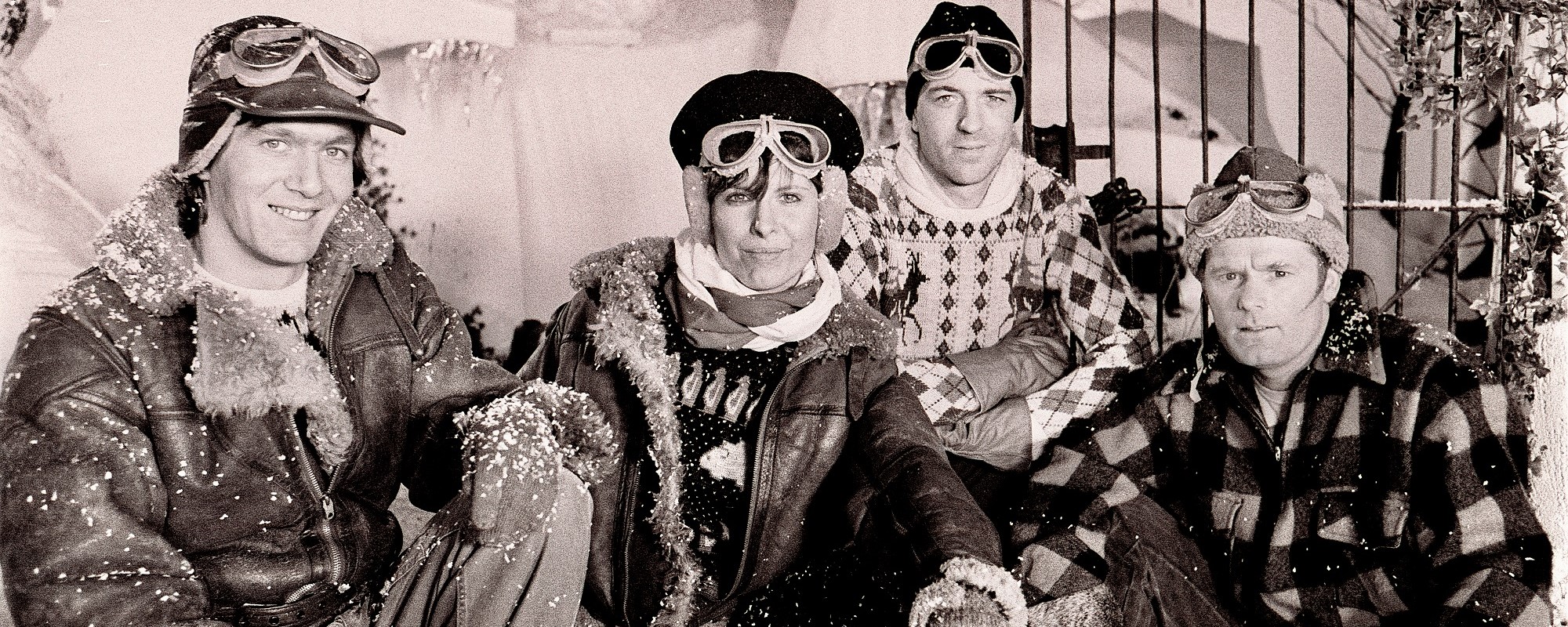Artists across all genres tend to release Christmas music every year. Sometimes, they compose new original songs for the holiday season. Others choose to put new spins on Yuletide classics. However, this isn’t a new practice, people have been singing carols for hundreds of years. In fact, some of the Christmas songs we hear today are among the oldest in existence.
Videos by American Songwriter
The Romans first celebrated Christmas in 336 AD. Since then, the holiday has undergone many changes and has seen countless songs. For instance, “Jesus Refulsit Omnium” or “Jesus, Light of All the Nations” is believed to be the oldest Christmas song. However, the hymn written by St. Hilary of Poitiers in the fourth century AD isn’t in heavy rotation this time of year. Likewise, “Corde Natus ex Parentis” or “Of the Father’s Love Begotten” written by Aurelius Prudentius Clemens is the oldest Christmas song still being performed. However, only a handful of churches still perform the ancient hymn to celebrate the holidays.
[RELATED: The 5 Highest-Earning Christmas Songs of the Streaming Age]
The Oldest Christmas Songs We Still Sing Today
We won’t be delving into ancient history and discussing songs most of the world has never heard of. Instead, we’ll look at some modern holiday favorites that are older than most people realize.
1. “What Child Is This?”
“What Child Is This” remains a popular Christmas song in the United States. You’ll likely hear it on the radio or during a holiday concert. However, many may not realize that it is more than 100 years old. William Chatterton Dix wrote the lyrics in 1865. Those lyrics were set to the melody of the English folk song “Greensleeves” in 1871.
The song taps into the Christian roots of the holiday. It’s a celebration of the birth of Jesus from the perspective of the shepherds or Three Wise Men, as they’re commonly called, who brought gifts for the newborn.
2. “Jingle Bells”
“Jingle Bells” is one of the most popular—and oldest—Christmas songs. Whether one celebrates the holiday for religious or secular reasons, this song is a staple. However, it originally didn’t have any connections to Christmas or any other holidays.
Written by James Lord Pierpont in 1857, the song’s original title was “The One Horse Open Sleigh.” The song’s origins are debated. Some say Pierpont wrote the song in the Simpson Tavern in Medford, Massachusetts as a drinking song. Others say the town’s yearly sleigh races inspired him. No matter the origins, though, “Jingle Bells” is one of the most sung Christmas songs more than 150 years after it was written.
3. “The 12 Days of Christmas”
“The 12 Days of Christmas” has gone through many changes since it was first published in the late 18th century in England. The lyrics have been paired with several melodies over the years and its original composer is lost to the mists of time. However, Frederic Austin created the version we still sing today in 1909.
4. “God Rest You Merry, Gentlemen”
Also called “God Rest Ye Merry, Gentlemen,” this is one of the oldest Christmas songs that remain a part of many holiday celebrations. Unfortunately, the song’s original writer is lost to time. However, the earliest printed version of the carol is on a broadsheet dated circa 1760. The long-defunct English periodical the Monthly Review published the song in 1764. An earlier, slightly different version of the song was discovered in a manuscript without an author’s name attached that dated from the mid-17th century.
5. “O Come, All Ye Faithful”
“O Come All Ye Faithful” is likely the oldest Christmas song that is still part of holiday celebrations today. Unlike some other songs whose writers are lost to history, the lyrics of this song have been attributed to several authors over the years. John Francis Wade, John Reading, King John IV of Portugal, and a group of Cistercian monks have all been credited with its creation. However, the earliest printed version of the song comes from a book published by Wade in 1751.
Originally penned in Latin, English Catholic priest Frederick Oakeley translated it to English in 1841. It is from his translation that we get the still popular version of “O Come All Ye Faithful” that we still sing today.
Featured Image by Sheridan Libraries/Levy/Gado/Getty Images













Leave a Reply
Only members can comment. Become a member. Already a member? Log in.